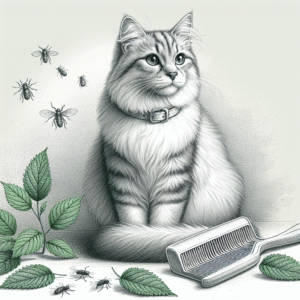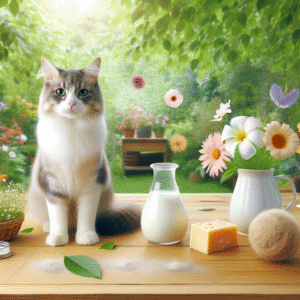
Cats, with their enigmatic personalities and independent nature, are often misunderstood as aloof creatures. However, with proper socialization, they can become affectionate, friendly, and well-adjusted companions. Whether you have a new kitten or an adult cat, understanding the nuances of socialization is key to fostering a strong bond. This ultimate guide will provide you with essential tips to facilitate the socialization process, ensuring a harmonious relationship with your feline friend.
Understanding Cat Socialization
Socialization refers to the process of exposing a cat to a variety of experiences, environments, and interactions, helping them adapt to different situations and people. Unlike dogs, cats are not pack animals, making their socialization process distinct. While some cats are naturally more sociable, others may require patience and gradual exposure to become comfortable and confident.
The Importance of Early Socialization
For kittens, the prime socialization window is between two to nine weeks of age. During this period, they are more receptive to new experiences, making it an ideal time to introduce them to various stimuli, including different people, pets, and environments. Early socialization can help prevent behavioral issues such as aggression, fear, and anxiety.
Adult Cat Socialization
While early socialization is critical, adult cats can still learn to be more sociable. Although the process might take longer, with consistent effort and patience, adult cats can adapt to new experiences and environments. Understanding the cat’s history, personality, and past experiences can provide insight into the best approach for socializing an adult cat.
Tips for Effective Cat Socialization
1. Create a Safe Environment
Before introducing your cat to new experiences, ensure they have a safe and secure environment. A designated space with familiar items such as their bed, toys, and litter box can provide comfort. This safe zone acts as a retreat when they feel overwhelmed.
2. Gradual Exposure
Cats can be sensitive to changes and new experiences. Introduce them to new stimuli gradually. Start with short, positive interactions and slowly increase the duration and complexity of these interactions as the cat becomes more comfortable.
3. Use Positive Reinforcement
Positive reinforcement is a powerful tool in socializing cats. Rewarding your cat with treats, affection, or playtime for calm and positive behavior can encourage them to associate new experiences with positive outcomes. Consistency is key, so ensure rewards are given immediately after desirable behavior.
4. Respect Their Pace
Every cat is unique, and their comfort levels with new experiences will vary. It’s important to respect their individual pace and not rush the process. Pushing a cat too quickly can lead to fear and anxiety, making socialization more challenging.
5. Introduce New People and Pets Carefully
When introducing your cat to new people or pets, do so in a controlled and gradual manner. Allow your cat to observe from a distance and approach at their own pace. Supervise interactions and intervene if the situation becomes stressful for your cat.
6. Encourage Play and Exploration
Play is an excellent way for cats to learn about their environment and build confidence. Provide a variety of toys and interactive play sessions to stimulate their curiosity and encourage exploration. This not only aids socialization but also provides physical and mental enrichment.
7. Acclimate to Handling
Getting your cat comfortable with being handled is crucial, especially for grooming and vet visits. Start by gently petting your cat and gradually progress to more handling, such as holding their paws or gently lifting them. Always reward them for calm behavior during handling.
Overcoming Socialization Challenges
Fear and Anxiety
Some cats may exhibit fear or anxiety during the socialization process. It’s important to identify triggers and work slowly to desensitize them. Providing a calm and predictable environment can help alleviate anxiety. Consider using feline pheromone diffusers to create a soothing atmosphere.
Aggression
Aggression can be a barrier to socialization. Identifying the root cause, whether it be fear, territorial behavior, or overstimulation, is essential. Avoid punishment, as it can worsen aggression. Instead, focus on understanding triggers and using positive reinforcement to encourage calm behavior.
Lack of Interest
If your cat seems indifferent to socialization efforts, assess their needs and preferences. Some cats are naturally more reserved, but providing enriching activities and building trust can gradually increase their interest in social interactions.
Special Considerations for Different Cat Personalities
The Shy or Timid Cat
Shy or timid cats require extra patience and gentle encouragement. Create a quiet and safe space for them to retreat to when needed. Use soft voices and slow movements to avoid startling them. Gradually introduce new experiences, allowing them to explore at their own pace.
The Independent Cat
Independent cats value their personal space but can still benefit from socialization. Respect their boundaries and focus on activities they enjoy. Interactive toys and puzzle feeders can engage their minds and encourage positive interactions.
The Outgoing Cat
Outgoing cats are often more receptive to socialization and can adapt quickly to new environments. However, ensure they have enough mental and physical stimulation to prevent boredom. Introduce variety in their activities to keep them engaged.
Conclusion
Socializing a cat is a rewarding journey that requires patience, understanding, and consistency. By creating a safe environment, using positive reinforcement, and respecting your cat’s individual pace, you can foster a strong bond and ensure your feline friend becomes a well-adjusted and sociable companion. Whether you are starting with a kitten or an adult cat, remember that each step towards socialization is a step towards a happier and healthier life for your pet. Embrace the process and enjoy the unique experience of nurturing your cat’s social skills.
“`
#ChatGPT assisted in the creation of this article.








